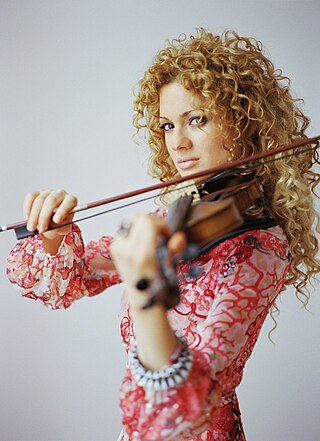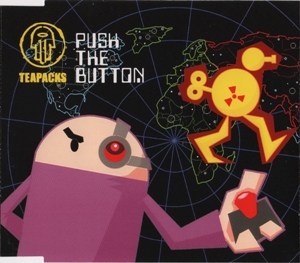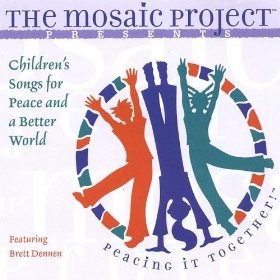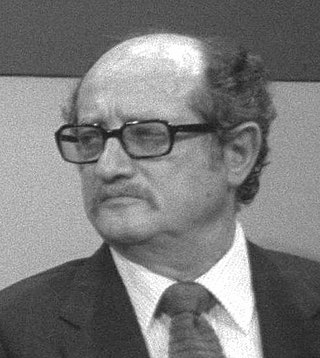Related Research Articles
The music of Israel is a combination of Jewish and non-Jewish music traditions that have come together over the course of a century to create a distinctive musical culture. For almost 150 years, musicians have sought original stylistic elements that would define the emerging national spirit. In addition to creating an Israeli style and sound, Israel's musicians have made significant contributions to classical, jazz, pop rock and other international music genres. Since the 1970s, there has been a flowering of musical diversity, with Israeli rock, folk and jazz musicians creating and performing extensively, both locally and abroad. Many of the world's top classical musicians are Israelis or Israeli expatriates. The works of Israeli classical composers have been performed by leading orchestras worldwide.
Israeli hip hop refers to hip hop and rap music in Israel.
Israeli rock is rock music created by Israeli bands and singers.

Ehud Manor was an Israeli lyricist, translator, poet and radio and TV personality. He is widely considered to have been Israel's most prolific lyricist of all time, having written or translated over 1,000 songs. In 1998, he was awarded the Israel Prize for his exceptional contributions to Israeli music.

Miri Ben-Ari is an American–Israeli violinist, singer, record producer, and humanitarian, known as "the hip-hop violinist".

Yaakov Choueka, better known by his stage name Yaakov Shwekey, is an Orthodox Jewish recording artist and musical entertainer. He is of Egyptian and Syrian Sephardic heritage from his father's side; and Ashkenazi from his mother‘s side.

Shmil Ben Ari is an Israeli actor.

"Push the Button", known in Hebrew as "Kaftor Adom", was the Israeli entry in the Eurovision Song Contest 2007, performed in English, French and Hebrew by Teapacks. This song was the first Israeli entry to feature lyrics in French, as well as the first to feature lyrics in any language aside from Hebrew or English. The entry gained the right to represent the country by an absolute majority, winning 20% of the televote, 20% of the SMS vote, 20% of the pre-vote and 40% of the jury vote. Teapacks had been selected as the Israeli representative by the Israel Broadcasting Authority and invited to perform four songs at the national final to determine which one would be performed in Helsinki.
Salaam is a short form of As-salamu alaykum, an Arabic greeting meaning "Peace be upon you". This phrase and the Arabic word Salām سلام 'peace' derive from the Semitic root Š-L-M.
Hatikva 6 is an Israeli reggae band started in Ramat Hasharon, Israel. Hatikva 6 plays dancehall and roots styles with Hebrew, English, and French lyrics. While reggae in Israel is a fairly young industry, Hatikva 6 has already been recognized in Israel through major performances all over the country at the biggest musical festivals. They have been compared to Matisyahu, a Jewish reggae artist, for the universality of their music. Much of their music is directly tied to the social, political, and religious aspects of Israeli life which is marked by tension due to the Arab-Israeli conflict, and the diverse religious demographics of the country. Songs such as “Elohim” and “World War x” are songs in which these themes are apparent. This form of musical production is proof of the versatility and cross pollination of reggae and how widespread its influence has become.

Moshe "Mosh" Ben Ari is an Israeli musician, lyricist, and composer.

Children's Songs for Peace and a Better World is the album released by the non-profit organization called The Mosaic Project. The organization's co-director is Brett Dennen, the folk musician, who wrote and performed the majority of the songs on the album.

Haim Hefer was a Polish-born Israeli songwriter, poet and writer. He wrote for numerous composers and musical artists, as well as for military bands. Several of his songs, including "Hafinjan" and "Hayu Zmanim", are considered Israeli classics. He was awarded the Israel Prize in 1983 as recognition for his contributions to Israeli music.
Eretz Yisrael Shelanu is a far-right religious party in Israel. Founded by Chabad Rabbi Shalom Dov Wolpo and Baruch Marzel on 11 November 2008, it seeks to prevent both the creation of a Palestinian state as well as the dismantling of Israeli settlements in the West Bank.

Michael Ben-Ari is an Israeli politician, and former member of the Knesset. During the 18th Knesset, Ben Ari was a member of the National Union party, until it broke up as elections for the 19th Knesset approached and he co-established the Otzma LeYisrael party. He failed to be re-elected to the 19th Knesset. He was banned by the courts from running in the 2019 election. He was the first outspoken disciple of Rabbi Meir Kahane to have been elected to the Knesset. He has a Ph.D in Land of Israel and Archaeology studies.
Ben-Ari is a Hebrew name, meaning "son of a lion". It may refer to:
Miriam Israeli, also known as Miri Israeli, is an American-born lyricist and singer of contemporary Jewish religious music. Her biggest hits are "Ima Tagidi Li", "Yesh Tikvah", and "Tikvah LeYeled". She performs internationally for women-only audiences.
Heedoosh is an Israeli-American Jewish hard rock band from New York City. They were formed in 2005 by brothers Yaniv and Yahav Tsaidi, and released their debut album, Meumkah Delibah, in 2006.
Doli & Penn is a songwriting and production duo consisting of Dolev "Doli" Ram and Penn Hazut. Best known by songwriting and producing credits on Mizrahi-pop hits by Eden Ben Zaken, Dudu Aharon, Eden Hason, Omer Adam, and Eyal Golan, among others. In 2017, they wrote and produced the Israeli entry for the Eurovision Song Contest 2017, "I Feel Alive" by Imri Ziv.

Hanan Ben Ari is an Israeli singer, songwriter, and composer. His debut album, Izun (Balance), released 21 February 2016, was certified gold in Israel with 15,000 copies sold in three months and received heavy radio play on Galgalatz. He has been noted as one of relatively few religious artists, including Ishay Ribo and Nathan Goshen, who have found success in the secular Israeli mainstream.